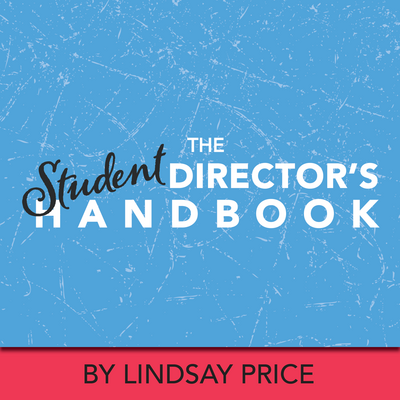Lessons Learned from Directing a Virtual Show
If you miss doing shows with your students, you’re not alone. We’re all missing live theatre! Luckily, there are playwrights writing virtual plays for online platforms that you can do right now. Check out the available shows in the Theatrefolk catalogue. While you’re at it, check out the following lessons I learned while directing my first virtual show. I hope they help you on your virtual show journey!
Know the rules.
Be aware when you’re selecting your show that different theatrical rights companies have different rules and requirements for streaming online shows. Some companies require you to use a particular streaming and/or ticketing platform. Some companies allow you to purchase “on demand” tickets (meaning audiences can watch the show at their leisure), while others only allow performances to be streamed at a particular time (like going to the theatre for real, so if you miss the streaming time, you’re out of luck). Some companies also don’t allow their shows to be presented online at all. Be sure to check all the requirements before you select a show to produce, and contact the company with any questions ahead of time so you don’t risk disappointment — both your own and your students’.
Zoom fatigue is real.
Try to keep virtual show rehearsals shorter than you would when rehearsing a show in person. I found that two hours was my limit for being able to focus during rehearsal. It’s hard to feel a true connection when rehearsing online, and you will likely have to use even more energy than you usually do because your students are tired too. To combat this, let your students know in advance what you’ll be rehearsing at each rehearsal and encourage them to familiarize themselves with the scene and their lines ahead of time. This doesn’t mean they need to be off-book before you’ve blocked the scene, but they shouldn’t be wasting time reading their lines for the first time during rehearsal. (This goes for in-person rehearsals as well, but it’s extra important when you have limited rehearsal time and waning focus.) Mix up what you’re working on — call smaller groups to rehearse shorter scenes for a shorter amount of time when you can, to break up the time and keep your mind fresh.
Record footage as you go.
Have clear deadlines in place for students to record and submit their footage at home. When I directed She Kills Monsters: Virtual Realms, we rehearsed on Thursdays and Saturdays, and the scenes that were rehearsed that week were due to me by the following Wednesday. Recording and uploading footage as you go makes things much easier. It reduces stress on students, because they won’t have a huge backlog of footage to record all at once. As well, if there are any issues with the recording (volume problems, incomplete footage, recording portrait rather than landscape, etc.), there will be time for students to re-record the footage.
Make sure your final due date for all footage (no matter what) allows plenty of time for the final project to be submitted to your streaming service. Allow yourself plenty of time to work on the footage, so you aren’t editing for 24 hours straight the day before the show is due. Allow yourself some wiggle room to submit the final project as well in case of technical issues with your editing software or Internet service.
On the topic of editing:
If you can, hire an editor to piece the audio and video footage together. It is time-consuming, tedious work, and it will be one less thing on your plate. Do you have a student who is keen to take on the project for extra credit?
Volume and diction is important.
Students still need to project their voices when they’re performing for the camera. Many students think that because they’re close to their device and alone in a room that they can speak in their “regular” tone. While they aren’t in the theatre and having to make sure the entire audience can hear them, volume and diction is still important. There are many things that can affect sound levels when recording, such as background noise (even ambient noises like the hum from overhead lights, a fan going in the room, or pipes running) or the audio quality of the student’s device. Students may also hold back when they’re recording themselves because they’re worried or embarrassed that their family will overhear them. However, you can only crank the audio so high when you’re putting the footage together, and having one student noticeably quieter than the rest of the cast will make it difficult for your audience to understand what’s going on (just like in in-person theatre!).
Have fun.
You and your students are getting to do theatre — not the way you’re used to, true, but you’re still getting to do something together! Your students are learning new skills: acting for the camera, framing and camera work, creative problem-solving. Rather than focus on the negatives of being away from each other and missing the feeling of being onstage, try to focus on working on a new creative endeavor together. On top of that, you’re caring for each other’s health and safety by doing a virtual show.
Related Articles
The Student Director's Handbook
by Lindsay Price
Help students take their show from first audition to opening night with The Student Director’s Handbook. This easy-to-use ebook is full of guidelines, tips and templates designed to help students create a vision, circumvent problems and organize rehearsals on their way to a successful production.
The Rehearsal Companion
by Kerry Hishon
You’ve chosen the play, paid the royalties, done the script analysis, held your auditions, and cast the show. Tomorrow is the first rehearsal. Are you ready? Really ready? The Rehearsal Companion can help!





